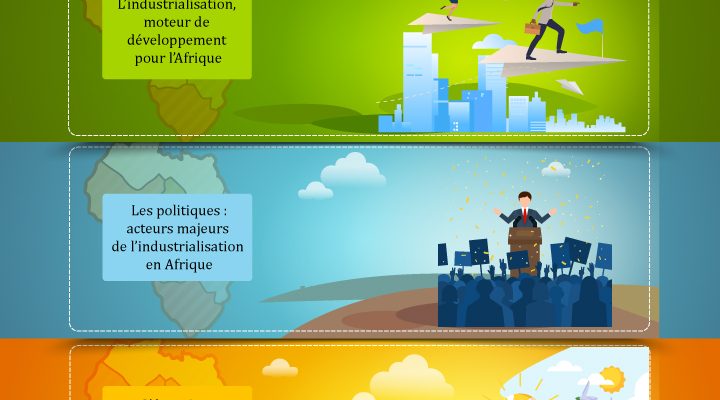The African population is growing, with a predominance of the young segment (more than 60% aged 0 to 25 years. It will amount to 2 billion inhabitants by 2050, or 1 / 5th of the world population The African population is active, in search of achievement, in search of modernity and manifests new consumption habits.
The emergence of the middle class
His aspirations give birth to a new way of life, and we see the emergence of a class that positions itself between the rich and the poor. We are talking about the middle class, a class that changes codes, imposes itself and influences the world. These attract the attention of politicians who are increasingly involved.
In 2010 The African middle class in Africa had 150 million people, a figure that is expected to jump to 210 million by 2020 and 490 million in 2040 (AfDB-2018). By 2025, Africa will have the youngest and largest workforce in the world. An economic potential that makes it an attraction for investors, a breeding ground capable of responding to the call for development and the challenge driven by the growing demand for consumer goods.
At this time, African economies are heavily dependent on trade in raw materials and the import of manufactured goods, which is causing the noted deficits in their balance of payments. In 2018 according to the BEAC, the balance of payment of the CEMAC zone, would have experienced a deficit of more than 2,000 billion FCFA.
Speaking of industrialization, industrial GDP remains very low across Africa. Despite the relative technological weakness of the continent, the context as described requires that it become industrialized.
Industrialization, engine of development for Africa
The role of industrialization is clearly endorsed in the African Union’s action plan for Africa’s accelerated industrial development and the third decade of industrial development for Africa. Agenda 2063, the African Union’s strategic framework for socio-economic transformation, recommends the development of regional value chains and basic products to support the implementation of industrial policies at all levels (ADB-2018) .
The contribution of the manufacturing sector to Africa’s GDP growth from 12% in 1980 to 11% in 2013 has stagnated since then, according to the United Nations Economic Commission for Africa (ECA). The wealth obtained during the rise in commodity prices in the 1990s has apparently not been intelligently invested. The fall in prices will then cause growth to fall below 4% in 2016 according to the IMF (CEA-United Nations).
Politicians: major players in industrialization in Africa
One of the causes of Africa’s weak industrialization is said to be the inability of leaders to implement bold policies. Political instability, weak infrastructural development (Health, Education, Road, Technology, Telecommunications, Energy, etc.) are also reasons for the slowdown in industrialization in Africa. The continent needs political commitment and daring to put the right policies in place despite all the challenges it faces.
Ethiopia, Rwanda, and Tanzania, however, have demonstrated their ability to make their way towards industrialization. They have all adopted industrial policies that favor their own manufacturing industries. They have set up what experts call the “developmental state model” in which the government controls, directs and regulates the economy. These countries have adopted investor-friendly policies, and the results follow. Since 2006, Ethiopia’s manufacturing sector has grown on average by more than 10% each year (2016 CEA-United Nations Report).
For “mayonnaise to take hold” in Africa, as has been the case in China and East Asia, policymakers must think outside the box and stop conforming to the orthodoxy drawn from their respective colonial powers.
In addition, to win the bet for the industrialization of Africa, the African Development Bank is working to mobilize funds, reduce the risks linked to private sector investments and attract capital.
Rich in its subsoil and its agriculture, Africa must diversify the key factors of its GDP essentially concentrated on agriculture and the production of raw materials; to create a value chain on which the future of its ever-growing population could be based, better master the market, consider the stability of its economy and promote its autonomy.
Energy: an important challenge for African industrialization
Only she faces an energy shortage. Energy is indeed an essential driver of the continent’s socio-economic and industrial development. Energy deficiency is therefore a cumbersome factor for the implementation and maintenance of industrial projects. It goes without saying that beyond significant regional disparities (between countries, between urban and rural areas); 70% of the inhabitants of Sub-Saharan Africa are deprived of access to electricity and their number continues to increase, since the electrification efforts continue to be below the rate of population growth (IEA, 2014 ).
Compared to agriculture or services, manufacturing is relatively more energy intensive. Industrialization increases demand for energy and therefore requires adequate infrastructure.
In Africa, Adenikinju (2005) highlighted the shortcomings observed in the supply of electricity on the activities of Nigerian firms. Based on data collected from a sample of African firms, Escribano et al. (2010) find that in half of the countries in the sample, the quality of electricity supply is a major problem for more than 50% of firms. In Burundi, Cameroon, Benin, Burkina Faso and Cape Verde in particular, the percentage of companies considering electricity as a serious obstacle to their activity exceeds 80%.
Similar article: https://www.afrikatech.com/fr/divers/lindustrialisation-de-lafrique-est-capitale-selon-macky-sall/
Other article: https://www.usinenouvelle.com/editorial/l-industrialisation-de-l-afrique-un-defi.N813695


Leave a Reply